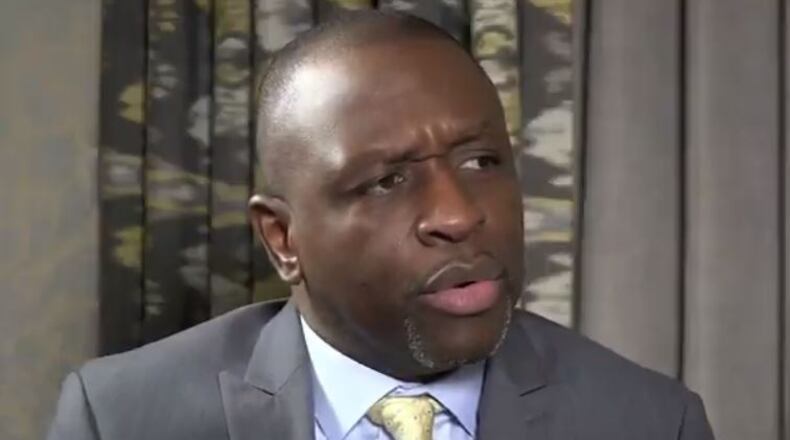Georgia’s first – and likely last – chief turnaround officer resigned today.
The resignation of Eric Thomas is not surprising. He was in Madison, Wisconsin, last night meeting with the community as one of three finalists for the school chief job there. Thomas has been a finalist for several superintendent's jobs around the country in the last 10 months.
While hired in late 2017 under former Gov. Nathan Deal to focus on chronically failing schools, Thomas has been working for the last year under Deal’s successor, Brian Kemp.
Deal won legislative approval for a chief turnaround office after voters in 2016 overwhelmingly rejected his constitutional amendment to allow state takeover of local schools.
Kemp did not share Deal’s enthusiasm for the CTO concept and slashed the office’s funding. Thomas and his office appeared an afterthought with both the new Governor’s Office and the Legislature.
Thomas never developed a bond with the state Department of Education, which has its own school improvement team and saw the CTO as duplicative effort. The CTO answers to the State Board of Education, not the DOE. In his resignation letter, Thomas referenced “the structural friction” built into that arrangement.
Adding to the strain was a DOE investigation into Thomas' office, triggered by allegations of discrimination, conflict of interest and misuse of funds by a whistleblower. DOE has declined to elaborate on its resulting internal audit of the CTO, which has now been sent to the state inspector general.
In his 90-minute session in Madison where he responded to community questions, Thomas referenced his job in Georgia a few times but closed with a mention of his view of the Gold Dome from his 18th-floor office across the street.
“There is politics in education. Almost every decision that I make, I factor in how is the governor going to take that? How’s the lieutenant governor? How’s the House going to take it? What is going to be the reaction of the Senate?” said Thomas. “Unfortunately, people have different agendas. Being able to navigate the politics of this sort of work is not easy.”
Here is a statement Thomas provided:
Under my leadership, the Chief Turnaround Office has operated within all established protocols and policies.
Regarding the "audit" thus far – I have not seen it. Although there were some generic initial questions via email, incredibly I was not interviewed regarding this matter. On three separate occasions I expressed my eagerness to have a face-to-face interview. None were obliged. Additionally, the "GaDOE internal team" refused to accept offered documents and information from me.
My belief is that a more neutral party, like the AG's Office, will more effectively manage this. From the onset, I was mystified at how GaDOE's internal "audit" team could be expected to be neutral and unbiased – since it reports directly to the Superintendent's Office. It is well-known that the Superintendent's Office has a hostile relationship with the Chief Turnaround Office. We were never welcomed by the Superintendent's Office.
Over the past six months it became clear that the CTO and GaDOE, as presently designed, were not going to coexist. When the legislation that created the Chief Turnaround Office was passed in 2017, the Superintendent argued the CTO should report to him, not to the State Board of Education. During last year's legislative session (2019), that effort again was championed. This audit was simply another move to accomplish that goal.
As some may know, I explored opportunities to transition a year ago. Ultimately, with encouragement from the Board, I turned down opportunities and decided to stay. As a Georgia native, I wanted to finish our work in creating a structure that could impact 1.8 million students.
As noted in my accepted resignation letter, I acknowledged the myriad of factors that led to my decision. Under my supervision, the CTO has had a variety of successes. We have assisted schools and districts in creating the conditions for ongoing success – and many of our partners have elevated beyond past expectations.
Ultimately, the State of Georgia needs to decide how to improve the outcomes that it is presently getting in education.
About the Author
Keep Reading
The Latest
Featured



